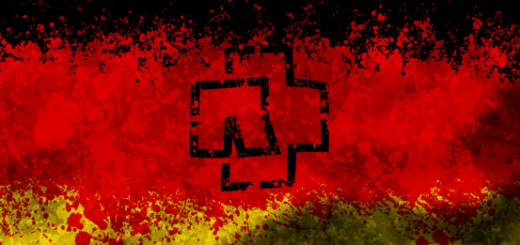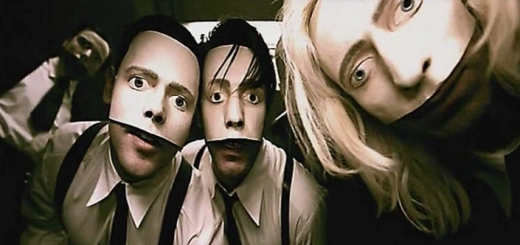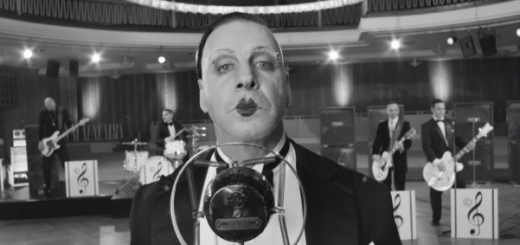Spring by Rammstein Lyrics Meaning – The Profound Metaphors at the Edge of Despair
Lyrics
Hält ein Mann die Arme auf
Da steht er nun und zögert noch
Die Menschen strömen gleich zuhauf
Auch ich lass mir das nicht entgehen
Das will ich aus der Nähe sehen
Ich stell mich in die erste Reihe
Und schreie
Der Mann will von der Brücke steigen
Die Menschen fangen an zu hassen
Bilden einen dichten Reigen
Und wollen ihn nicht nach unten lassen
So steigt er noch mal nach oben
Und der Mob fängt an zu toben
Sie wollen seine Innereien
Und schreien
Spring
Spring
Spring
Spring
Erlöse mich
Spring
Enttäusch mich nicht
Spring für mich
Spring ins Licht
Spring
Jetzt fängt der Mann zu weinen an
(Heimlich schiebt sich eine Wolke)
Fragt sich Was hab ich getan
(Vor die Sonne es wird kalt)
Ich wollte nur zur Aussicht gehen
(Die Menschen laufen aus den Reihen)
Und in den Abendhimmel sehen
Und sie schreien
Spring
Spring
Sie schreien
Spring
Spring
Erlöse mich
Spring
Enttäusch mich nicht
Spring für mich
Spring ins Licht
Spring
Heimlich schiebt sich eine Wolke
Vor die Sonne es wird kalt
Doch tausend Sonnen brennen nur für dich
Ich schleich mich heimlich auf die Brücke
Tret ihm von hinten in den Rücken
Erlöse ihn von dieser Schmach
Und schrei ihm nach
Spring
Spring
Spring
Spring
Erlöse dich
Spring
Enttäusch mich nicht
Spring
Spring für mich
Spring
Enttäusch mich nicht
Rammstein has never been a band to shy away from the profound or the provocative, and their song ‘Spring’ from the album ‘Rosenrot’ stands as a testament to their ability to mesh complexity with a haunting melody. On the surface, the song narrates a chilling tale, but beneath it lurk layers of meaning that only the most introspective analysis can unveil.
With its unsettling lyrics and the band’s signature industrial metal sound, ‘Spring’ challenges the listener to look beyond the edge of humanity’s darker tendencies, exploring the nature of mob mentality and the desperation of an individual trapped by circumstance.
The Story on the Bridge: Testaments of Agony
The song describes an individual, poised high upon a bridge with outstretched arms—a man caught in a moment of hesitation. As a crowd gathers, the man contemplates stepping down, but the swarm of onlookers traps him with their expectation and their cries for him to jump. This narrative speaks volumes about the voyeuristic nature of society, often finding entertainment in another’s suffering.
This scene paints a macabre tableau, representative of how societal pressures can corner an individual, stripping them of their agency. The man’s indecision and subsequent capitulation to climbing back up become a powerful symbol of the impossibility of escaping a crowd’s judgment once it’s been unleashed.
Crowd’s Chorus of Cruelty: Exploring ‘Spring’
The chanting of ‘Spring’ (‘Jump’ in German) creates an eerie chorus that rings throughout the song, serving as the heartbeat of the narrative. It’s a command, a plea, and a judgment all rolled into one. The crowd is faceless, its voice monolithic; it does not reason or empathize—it only demands.
The repetition of this demand becomes an overwhelming force, symbolizing how the collective voice can override the individual’s free will. Through these cries, the audience bears witness to the horrifying spectacle of a crowd turning into a mob, hungry for the man’s tragic end.
Unveiling the Darkness: The Hidden Meaning Behind ‘Spring’
At its core, ‘Spring’ holds a mirror to the darkest aspects of human nature—the schadenfreude and the twisted sense of empowerment over others’ fates. The song goes further, diving into the psychology of the mob and its power to push an individual to a breaking point.
The lyrics make subtle allusions to themes of redemption and betrayal. The call to ‘Spring ins Licht’ (‘Jump into the light’) could be perceived as ironic, suggesting a phantasm of deliverance in an act of destruction, emphasizing the hypocrisy of the crowd as they cloak their sadism in feigned benevolence.
The Climactic Betrayal – A Twist in the Narrative
In a shocking turn, the singer reveals their participation in the tragedy. Rammstein is known for narrative twists that force the listener to reassess what they’ve heard. Here, the protagonist shifts from passive observer to active participant by pushing the man from behind, ‘releasing’ him from his ‘disgrace’—a move that questions the distinction between observer and accomplice.
This moment strikes a chilling chord, reminding us that the line between watching a horror and causing it can be perilously thin. The act of pushing is symbolic, marking the ultimate surrender to the bloodthirsty will of the mob. It speaks to the loss of individuality and the pervasive influence of groupthink.
Memorable Lines that Echo the Soul’s Descent
Among the song’s many bone-chilling lyrics, the repeated entreaty ‘Erlöse mich’ (‘Release me’) and ‘Enttäusch mich nicht’ (‘Do not disappoint me’) cut deep. The man’s plea for release juxtaposed with the threat of disappointment heightens the tension between his desire for freedom and the crowd’s demand for spectacle.
These lines unsettle not just for their directness, but also for their dual meaning—they can be read as the man’s prayer for both literal and figurative salvation. And as these words resonate, listeners are left pondering the complexities of compassion, responsibility, and the human condition.








